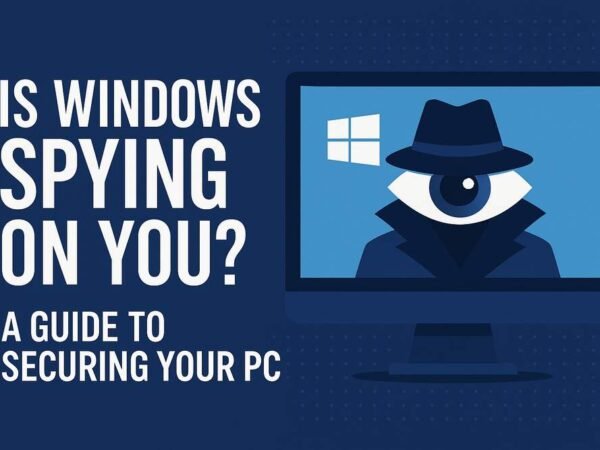Have you ever felt like you’re speaking a different language than your team? Or found yourself losing your cool during a tense meeting? If so, you’re not alone. Many leaders face these challenges daily, often without realizing there’s a common thread: emotional intelligence.
I’ve witnessed personally how improving emotional intelligence may significantly increase a leader’s performance. It’s not just about being ‘nice’—it’s about understanding yourself and others on a deeper level, which leads to better decision-making, stronger relationships, and ultimately, more successful organizations.
This is why programs like the PedroVazPaulo Executive Coaching Program place such a strong emphasis on emotional intelligence development.
What Is Emotional Intelligence and Why Does It Matter?
Emotional intelligence, often known as EQ, is the capacity to perceive, analyze, and control one’s own emotions as well as those of others. It consists of four fundamental components:
- Self-awareness: Recognize your own feelings and their influence.
- Self-management: Involves controlling your emotions and responding to changing situations.
- Social awareness: Understanding and responding to the feelings of others.
- Relationship management: Using emotional knowledge to properly manage interactions.
For leaders, EQ is critical. TalentSmart revealed that emotional intelligence is the biggest predictor of performance, accounting for 58% of success in all sorts of employment.
How Does Low EQ Impact Leadership?
Leaders with lower emotional intelligence frequently struggle with:
- Difficulty managing stress and pressure
- Poor communication with team members
- Inability to handle conflicts effectively
- Lack of empathy towards others’ perspectives
- Resistance to feedback and personal growth
These issues can lead to decreased team morale, higher turnover rates, and ultimately, poorer organizational performance.
Can Emotional Intelligence Be Developed?
The good news is that emotional intelligence is not fixed; it can be learned and increased over time. Here’s where coaching comes in. A good coach may help leaders improve their EQ by:
- Self-reflection exercises: Encouraging leaders to examine their thoughts, feelings, and behaviors
- Feedback analysis: Helping leaders understand how others perceive them
- Scenario-based learning: Practicing emotional regulation in simulated high-stress situations
- Active listening practices: Improving a leader’s capacity to actually hear and comprehend people
- Empathy training: Developing the ability to see situations from multiple perspectives
Real-World Impact of Improved Emotional Intelligence
Let me share a quick story. I worked with a CEO named Mark who was brilliant at strategy but struggled with team relationships. His direct reports described him as “intimidating” and “unapproachable.” We focused our coaching sessions on helping him build emotional intelligence.
We started with self-awareness exercises, helping Mark recognize his own emotional triggers. Then, we worked on techniques for managing those emotions in high-stress situations. Finally, we practiced active listening and empathy skills.
The results were remarkable:
- Employee satisfaction rates jumped by 40%
- Team productivity improved by 25%
- Turnover rates dropped from 22% to just 8%
Mark’s improved emotional intelligence didn’t just make him a “nicer” boss—it made him a more effective leader and directly impacted his company’s bottom line.
How to Start Developing Your Emotional Intelligence
Ready to boost your EQ? Here are some steps you can take today:
- Practice self-reflection: Take time each day to identify and name your emotions
- Seek feedback: Ask trustworthy coworkers how they see your emotional responses
- Listen actively: Focus on truly understanding others, not just waiting for your turn to speak
- Practice empathy: Try to see circumstances from others’ perspectives, even if you disagree
- Manage your stress: Create appropriate coping strategies for pressure and anxiety
Remember that gaining emotional intelligence is a journey rather than a destination. It requires time, experience, and, in many cases, expert assistance.
The Role of Coaching in Emotional Intelligence Development
While self-study is valuable, working with an experienced coach can accelerate your EQ growth. A good coach will:
- Provide objective feedback on your emotional responses
- Help you detect blind spots in your self-perception
- Teach proven techniques for emotional regulation
- Guide you through challenging real-world scenarios
- Hold you responsible to your emotional intelligence goals
During my years of coaching CEOs, I’ve witnessed incredible breakthroughs. Leaders who formerly struggled with team dynamics now excel at motivating others. Those who avoided confrontation learned how to handle challenging talks with grace and effectiveness.
Conclusion: The EQ Advantage
In today’s complex business world, technical skills alone aren’t enough. Those who are able to comprehend and control their own emotions as well as those of others are the best leaders. By developing your emotional intelligence, you’re not just becoming a better leader—you’re setting yourself and your organization up for long-term success.
Note that developing one’s emotional intelligence is a talent that can be learned. There’s always space for improvement, regardless of how experienced you are as an executive or how new you are to leadership. So why not get going right now? Your career, organization, and team will all appreciate it.
Also read interesting articles at Disboard.co.uk












